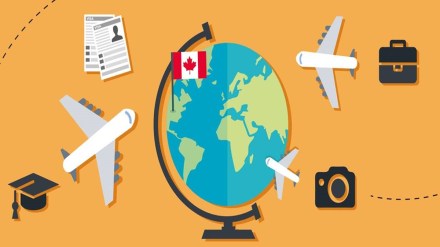Canada has terminated the highly popular Student Direct Stream, which may significantly impact its popularity as a leading destination for international students. The Student Direct Stream (SDS) program expedited study permit processing for Canadian post-secondary DLI applicants by requiring certain pre-requisite evidence submissions. All study permit applications received after November 8 are processed using standard study permit procedures.
Canada plans to decrease the number of study permits issued in 2025 and 2026, with a 10% decrease from the 2024 target of 485,000 and a stabilization of the intake cap for 2026. For 2025, this means reducing the study permit cap at 437,000.
Here are a few industry experts’ reactions to the termination of Canada’s SDS.
Marlene Olsavsky, Country Lead for the Duolingo English Test in Canada
The closure of Canada’s Student Direct Stream (SDS) program marks a significant shift for international students aspiring to study in Canada. While the SDS offered a streamlined process it also imposed restrictions, particularly in the choice of English Proficiency Tests (EPTs), limiting options and adding financial burdens.
With the shift to the regular study permit process, students now benefit from greater flexibility including more affordable and personalized testing options like the Duolingo English Test (DET).
For Indian students, the DET offers distinct advantages—it is digital, accessible online from anywhere, user-friendly and significantly more affordable compared to traditional tests like IELTS and PTE, which were previously accepted under SDS.
Accepted by over 375 programs in Canada, including top institutions such as the University of Toronto, McGill University and the University of Waterloo, the DET provides a seamless pathway for fulfilling language requirements. Its results are valid for two years, meaning that if a student’s chosen institution accepts the DET, additional testing for visa purposes may not be necessary.
This increased flexibility not only reduces costs and logistical hurdles but also ensures Canada remains a highly attractive destination for international students, offering world-class education and opportunities with a more inclusive and adaptable approach.
Saurabh Arora, Founder & CEO, University Living
The cancellation of the SDS programme is a positive step towards streamlining the student visa process, ensuring that only serious, genuine students pursue higher education abroad. This shift allows for a more focused and committed student body, benefiting those truly dedicated to their academic journeys.
The regular study permit route, while being more affordable, requires the government’s attention and careful observation of how factors like increased processing times, more financial proof requirements, and reduced work opportunities for spouses should not impact genuine students adversely.
These changes will play a key role in shaping the student’s experience in their post-admission journeys. However, we remain hopeful that the Canadian government will address these challenges to create a smoother, more accessible pathway for international students.
At the same time, emerging study destinations such as Spain, Italy, and Malta offer excellent alternatives for students. These countries provide high-quality education alongside more affordable visa options, presenting viable alternatives for those looking to broaden their academic horizons. While this change introduces both opportunities and challenges, we are optimistic that it will lead to positive outcomes for genuine students.
Aritra Ghosal, Founder and Director of OneStep Global
Canada’s decision to terminate the Student Direct Stream (SDS) program, which has been a crucial fast-track visa pathway for Indian students, will undoubtedly impact students’ plans and preferences.
While the exact reasons behind this change are not entirely clear, it may be connected to broader immigration policy adjustments or an effort to manage the volume of applications amid the current diplomatic tensions.
For Indian students, the removal of SDS may introduce additional hurdles, potentially increasing processing times and leading to uncertainties.
However, it’s essential to remember that Canada has consistently valued its role as a top destination for international students. We remain hopeful that this change is part of a broader plan to refine the visa process, and we encourage students to stay informed and consider all available options while planning their educational journeys.
Sachin Jain, Country Manager of ETS India & South Asia
Canada has been a sought-after study abroad destination for Indian students pursuing education in STEM, Management and other high-demand streams as they will continue to benefit from favorable post-study work and PR opportunities.
Notably, India is Canada’s largest source of international students, with over 4,27,000 Indian students currently enrolled in Canadian institutions, according to the Ministry of External Affairs. Canada’s robust economy, globally recognized education system & the presence of tech and other companies in the country will ensure that it remains a top choice for Indian study abroad aspirants.
SDS enabled students to fast-track their study permits by meeting specific financial and academic requirements. While its rollback provides a level playing field for those who found the option financially unviable, it may increase the time it takes to receive a study visa in Canada which should be borne in mind while applying to Canadian Higher education institutions.
Additionally, as Canada looks for genuine students to study and work in the country, we recommend the inclusion of standardized tests such as TOEFL at a test centre in the general study visa guidelines given the validity and fairness of the English language competency that TOEFL has demonstrated for the last 60 years.
